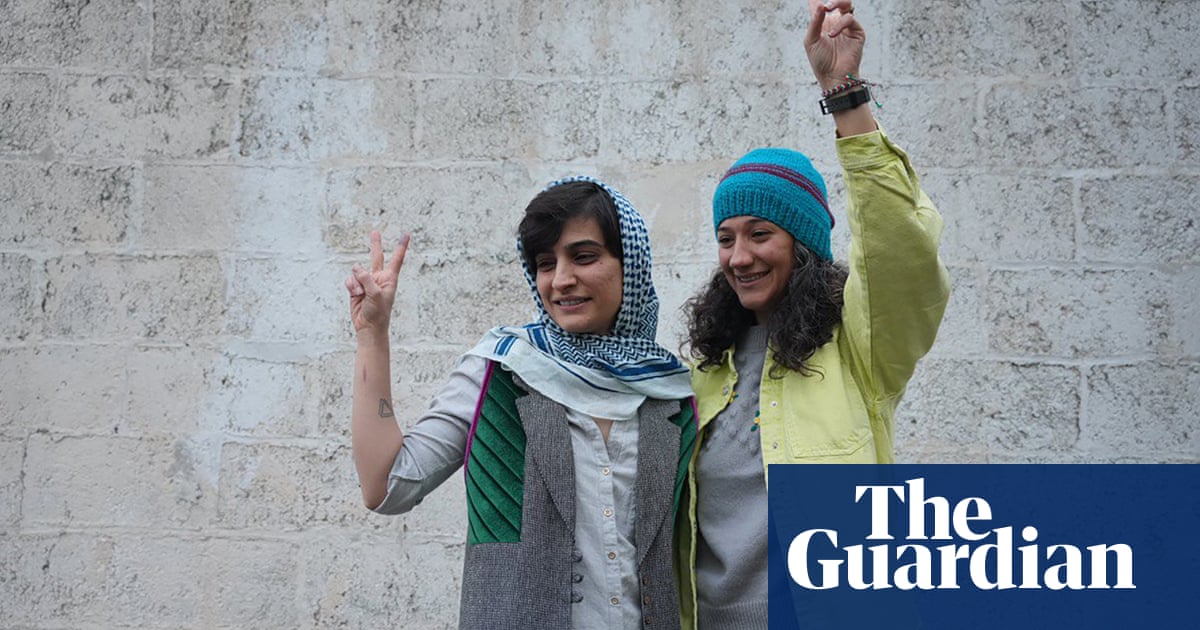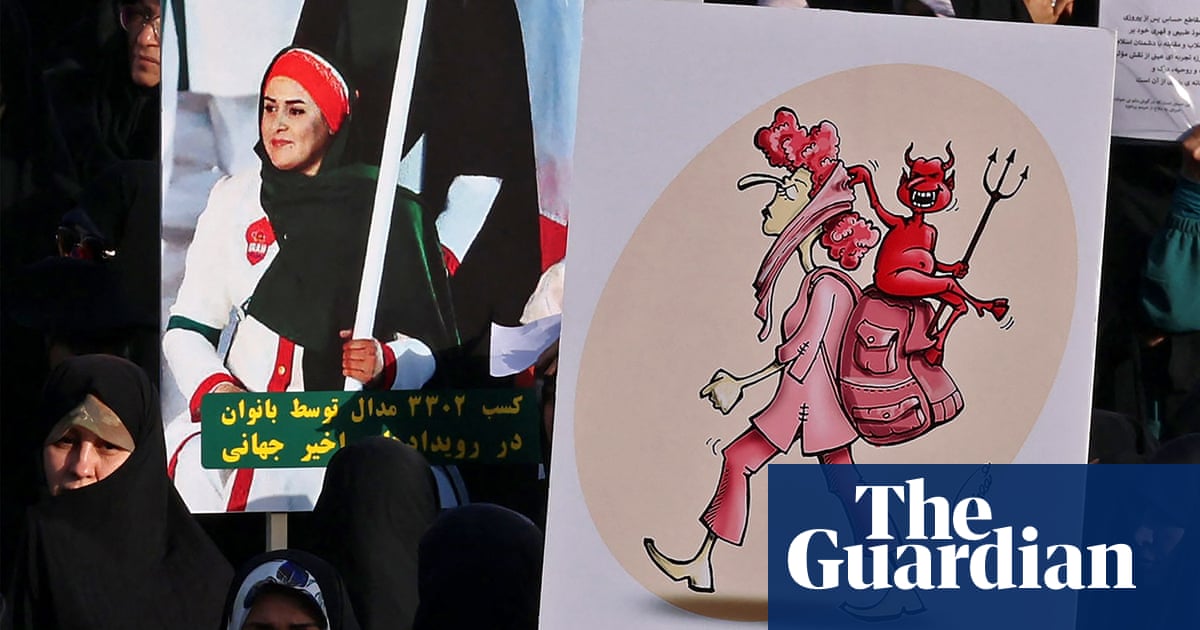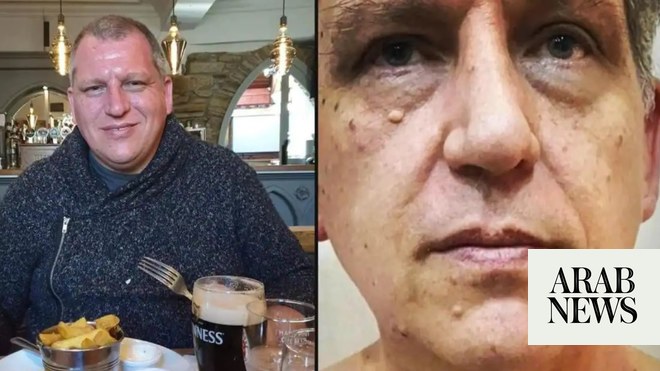
Two female journalists, who were released on bail from prison in Iran on Sunday, having spent 17 months in jail for reporting on the death of Mahsa Amini, have been charged under the country’s hijab laws after pictures were published of them celebrating their release with their heads uncovered.
Niloofar Hamedi, 31, and Elaheh Mohammadi, 36, were met by a crowd of more than 100 family members and supporters outside Evin prison in Tehran when they were released, and were shown flashing victory signs.
Hamedi and Mohammadi were released on a 10bn toman (£150,000) bail after appealing against their sentences of 13 and 12 years respectively, which were handed down to them by a revolutionary court in 2023 after they were found guilty of spreading propaganda; committing a crime against national security; and collaborating with a foreign state.
On Monday, the state-controlled Mizan news agency said that the two women have now been charged for not wearing a hijab after photos of them embracing and celebrating their release were widely circulated on social media.
Hamedi and Mohammadi were among the first journalists to report on the death of Mahsa Amini, the young Kurdish woman whose death in custody sparked nationwide protests in 2022. They were arrested days after people across the country took part in anti-regime protests that would rage for nearly 10 months and lead to the deaths of at least 522 people and more than 20,000 arrests.
Speaking on the new hijab case filed against Hamedi and Mohammadi, Masih Alinejad, an Iranian journalist living in exile in the US, told the Guardian: “Compulsory hijab is the main pillar of this gender apartheid regime. That’s why the authorities in Iran want to punish these two women, who resisted forced veiling and practised their civil disobedience. In the eyes of Islamic Republic officials they are criminals, but in the eyes of millions of Iranian women, they are our heroes.”
Azam Jangravi, an Iranian information security analyst and human rights activist, said the release of Hamedi and Mohammadi could be connected to the forthcoming elections in Iran.
“We’re near the elections, and they want to attract a positive public opinion, and that’s why they released Niloofar and Elaheh,” said Jangravi, who now lives in Canada. “And from a different angle, after their release on bail, Elaheh and Niloofar did not wear the compulsory hijab, to show their ongoing fight. But now the hardliners of Islamic Republic that want compulsory hijab have complained about why they were released and the regime has added additional accusations to keep their followers happy.”
Activists and human rights organisations say the state is taking an increasingly harsh stance against those who continue to refuse to comply with Iran’s mandatory hijab law, which requires all women to cover their heads and hair when in public.
On Monday morning, the family of the human rights activist Narges Mohammadi, who was arrested and detained by the authorities last year, posted on Instagram that she has been sentenced to an additional year in prison on new charges of spreading propaganda against the Islamic republic while behind bars.
“The revolutionary court sentenced Narges Mohammadi to endure 15 months in prison, two years of exile outside Tehran and neighbouring provinces, a two-year travel ban, a two-year ban on membership in social-political groups, and a two-year ban on using a smartphone,” said the statement.
The family added that Mohammadi, who was awarded the Nobel peace price in 2023, now faces “five convictions since March 2021, amounting to a total of 12 years and three months of imprisonment, 154 lashes, four months of travel ban, two years of exile” and several social and political prohibitions.












